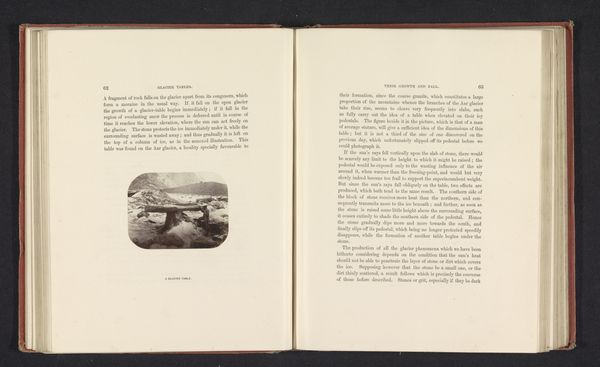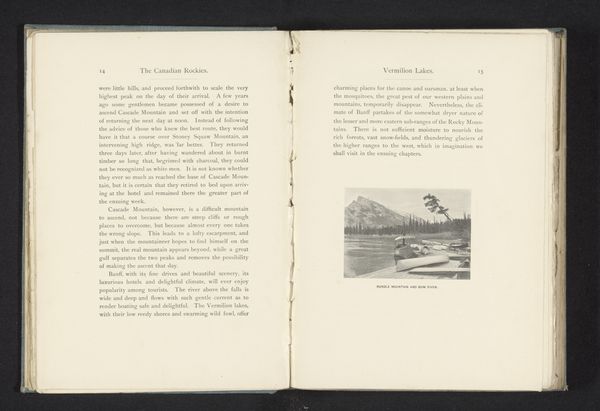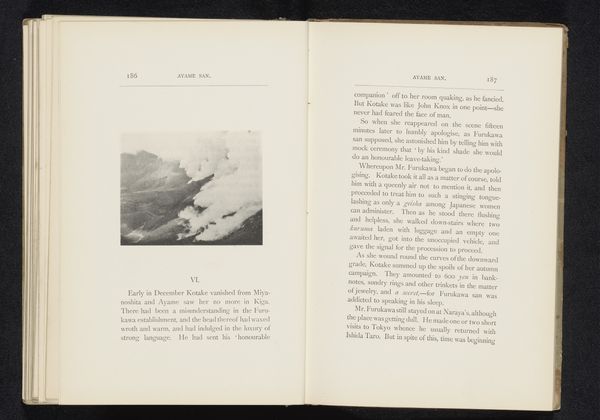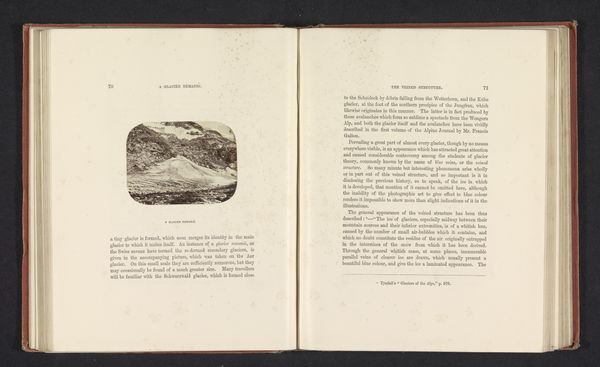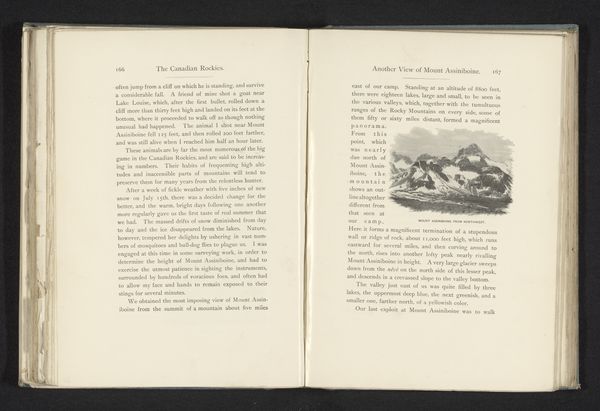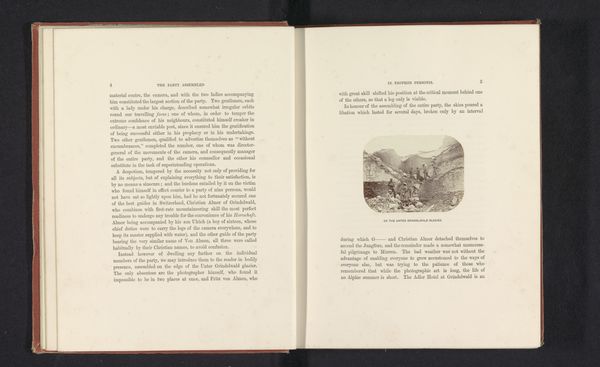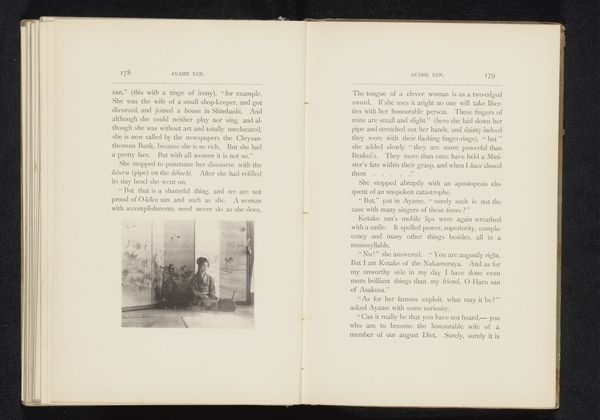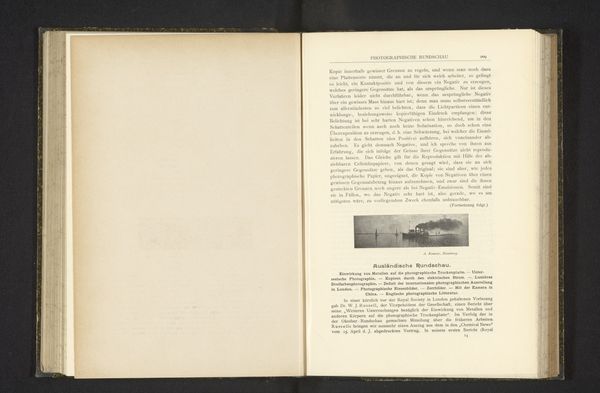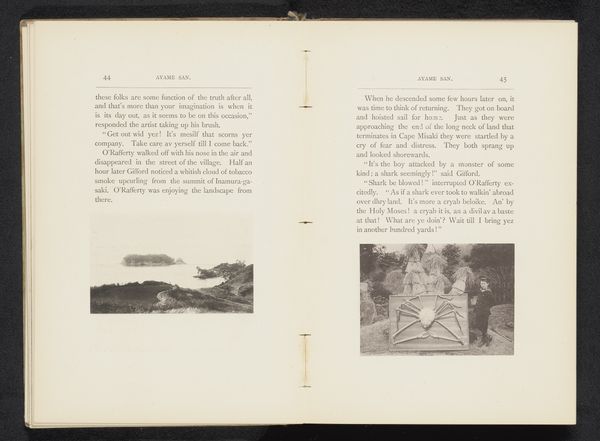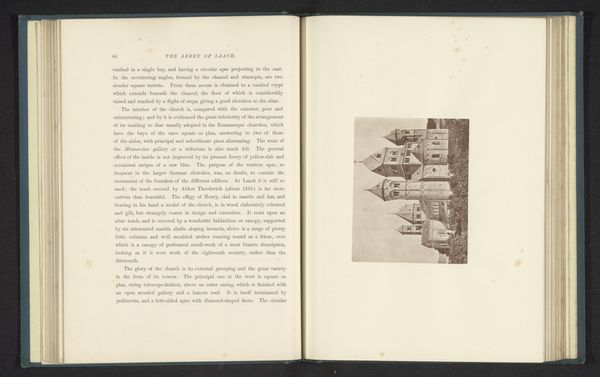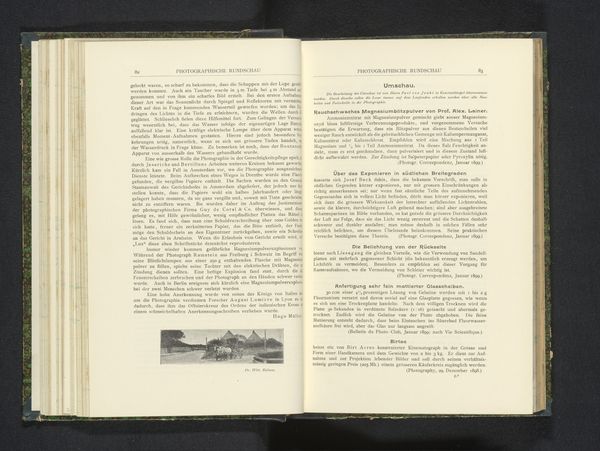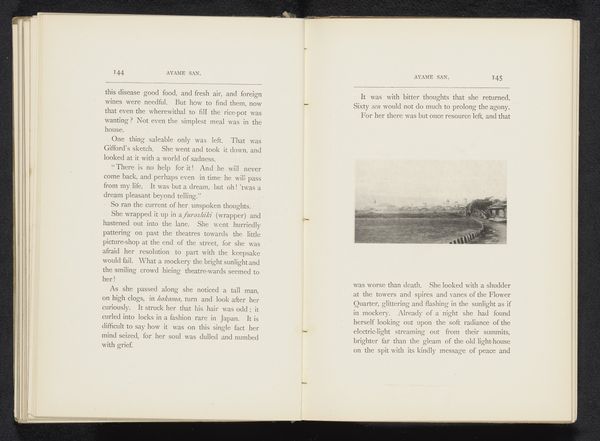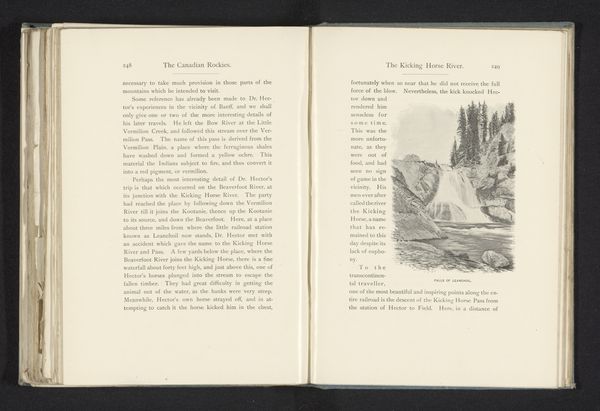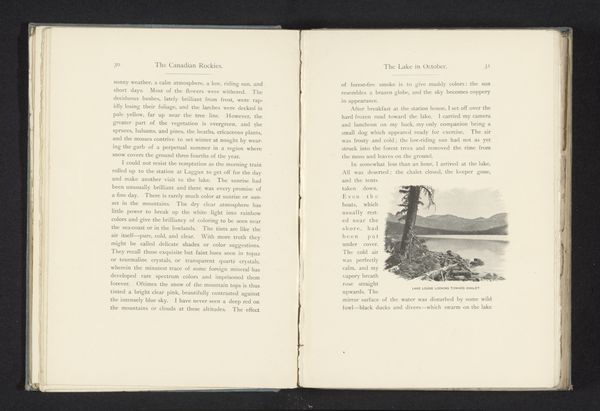
print, etching, photography, woodcut
#
lake
# print
#
etching
#
landscape
#
photography
#
woodcut
Dimensions: height 62 mm, width 90 mm
Copyright: Rijks Museum: Open Domain
Curator: Here we have "Gezicht op North Lake" – a fascinating image from before 1897, credited to Walter Dwight Wilcox. It appears to be a print of a photograph within a book. Editor: My first impression is one of stark beauty. The monochromatic palette gives it a timeless quality, like gazing upon a scene from a different era. I notice the stark contrast of the mirrored reflections on the water’s surface with the detail in the tree's in the foreground. Curator: Precisely. Wilcox was captivated by the grandeur of the Canadian Rockies. He aimed to capture not just their physical presence, but also their emotional impact – their sublimity, really. The image feels composed for reflection and the power of nature. Editor: It speaks to the allure of exploration and the mastering of reproduction techniques of the time. Woodburytype was being experimented with; it would be helpful to identify whether that medium could have aided in translating the original photograph to print with greater resolution. How was this image consumed within the book medium – what are the possibilities and restrictions of producing this work and making it viewable? Curator: That materiality of course frames how the landscape has been culturally viewed in this period as it was consumed – wilderness, certainly – yet increasingly mediated and commodified as a tourist destination via illustrated publications. I see how North Lake served as a kind of mirror for the soul, if you will. The calm waters reflecting the mountains suggesting introspection. The single image might echo the grander project – a search for deeper meaning within the vastness of the natural world, to echo how nature shaped perceptions of nationhood. Editor: Perhaps a reminder that these majestic landscapes also fueled industrial expansion through mining and logging, with their own marks upon nature – it shows a changing interaction and representation that’s always layered. How we consume these images is integral to understanding this piece. The contrast is arresting. Curator: Indeed. It reveals a world on the cusp of dramatic change, perceived through an lens of romanticism even at that moment. A compelling record of the Canadian landscape, at a turn of a new century. Editor: Right, a poignant echo of progress that makes us wonder. A moment caught at an incredible resolution!
Comments
No comments
Be the first to comment and join the conversation on the ultimate creative platform.
